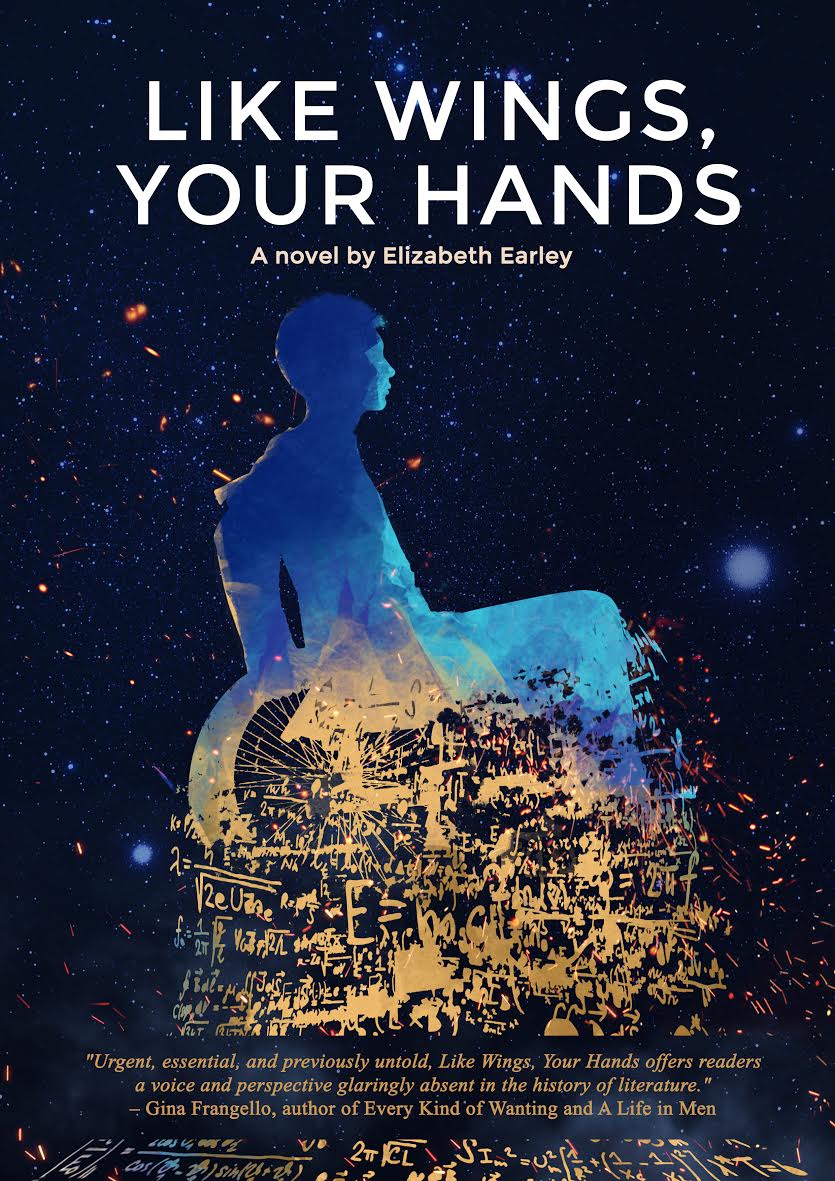|
The Breadcrumbs widget will appear here on the published site.
Math and Magic Across Millions of MilesBy Alex Carrigan In her forthcoming novel Like Wings, Your Hands, author Elizabeth Earley tells a story about Kalina and Marko, a mother and son living in Boston. Kalina is an immigrant from Bulgaria and recent divorcee who spends most of her time looking after her son, who was born with spina bifida and has had to grow up with numerous health issues as a result. Marko, now in his teen years, is trying to understand his place in the world, especially as he sees the world a lot differently than other people, seeing emotions as numbers and linking them to colors, shapes, and textures. It's as Marko enters high school that both characters start to ruminate on their lives and their futures, from Kalina revisiting issues from her childhood and Marko using a meditation technique to drift into the body of someone who is no longer of this world. Earley's narrative drifts in and out of various moments of Kalina and Marko's life, with Kalina revisiting her childhood as the daughter of a Bulgarian ambassador in Thailand and Marko trying to navigate his complex feelings and emotions as grows closer to another student at a school for disabled students. This also ties in with their current relationship, as Marko realizes that he doesn't know his mother as a person and tries to learn more about her youth by secretly reading her diary. Compared to other parent-and-child narratives, this one feels a little more complex because of how much Marko depends on Kalina, but also how at arms-length they are, as Marko wants to know more about her but has to do so in a secretive way. Likewise, a lot of Kalina's life is centered around caring for Marko, but she herself keeps others out of her circle due to various personal issues she has. In many disability narratives, there's also a trend where the disabled character seems enlightened or transcends able-bodied people with their added perspective on life. While Marko is a very curious and intelligent character, he often focuses more on his own experience and his own quest for knowledge. When he enters the memories of Emil, a Thai boy who his grandfather was entranced by back in the 1980s, most of this experience is kept to himself, with Marko focusing more on how he can experience so much in Emil's body than he can in his own body, but also how his experiences as Emil translate to his budding relationship with his classmate Malik. Even Kalina, who in many stories would be seen as a beleaguered and saintlike figure for her dedication to caring for her disabled child, is allowed to be troubled and frustrated with the situation. It's clear throughout the story that she often finds ways to put herself down and be confrontational with people who try to get close to her, like her ex-husband, her mother, and her therapist. Despite this, she clearly puts everything into caring for her son and her moments of frustration are fleeting moments that don't make her entirely unlikable. What helps this story as well is that it paints a full picture of what living with spina bifida and its additional symptoms and complications is like. It can reach uncomfortable levels reading about how Marko has to be catheterized in order to urinate, or reading about the surgeries he has dealing with encephalitis. The reader is constantly made to see how Marko's life has to be handled differently and understand how much Kalina and others have to work to care for him. It shows how difficult it can be to live with this condition, and Despite this, the novel never gets too uncomfortable or too saccharine with its narrative. Earley's use of magical realism works well for this story, as the genre allows authors to use unconventional storytelling to share truths about the world without being too afraid to address the grim parts of life or to completely swallow up the positive aspects of life with odd and otherworldly occurrences. The use of the "dream bed" to enter past lives and to connect with people from different countries and time periods may seem absurd in this story, but it is used magnificently in order to broaden the setting and allow the characters to see and do more in their limited space. While Like Wings, Your Hands does handle its characters, story, and setting well, there are a few places and elements that weren't as developed as they could be. Some aspects of Kalina's life aren't as explored or developed as they could be. While the diary aspect helps flesh out Kalina more, there is a lot in her present life that could have been explored more. Some side characters could have also been utilized more to expand the story and setting, such as Kalina's mother, Lydia, or even with more time spent with Emil or Kalina's late brother, Marko (who her son was named after). Despite these quibbles, Like Wings, Your Hands is still a magical and fantastic read for those who enjoy magical realism and narratives with disabled characters. Earley has created some very relatable and human characters, so even if their experiences and situations aren't universal, there's still plenty to relate to and for the reader to place themselves into. A story like this could have gone too cheesy or too dark, but with a right balance of drama and magic, Earley's novel has coalesced into an enchanting and emotional story that is sure to make the reader see in more colors and numbers than they're used to. Like Wings, Your Hands will be released by Red Hen Press in October 2019
0 Comments
CommentsYour comment will be posted after it is approved.
Leave a Reply. |
AuthorWrite something about yourself. No need to be fancy, just an overview. Archives
July 2024
Categories
All
|



 RSS Feed
RSS Feed






